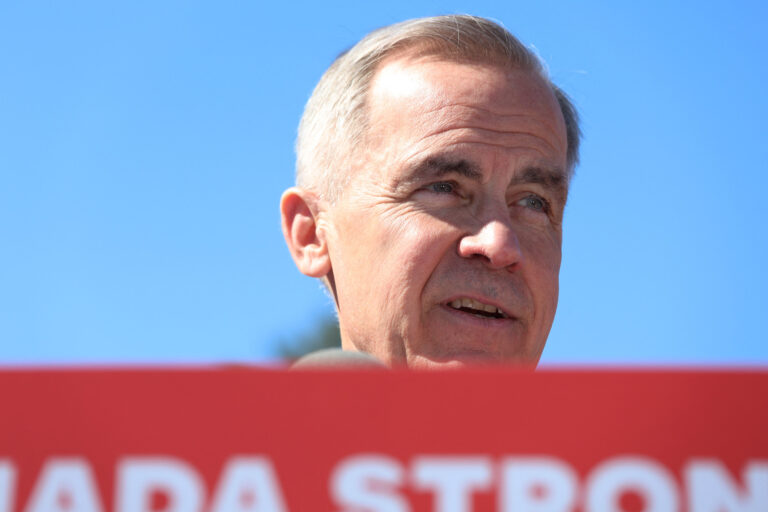TORONTO — Attendees at this year’s Elevate Festival in downtown Toronto could hardly walk a metre in their Allbirds without seeing the word “Canadian,” as techno-patriotism displaced techno-optimism as the dominant vibe among business leaders.
Executives like Maverix Private Equity managing partner John Ruffolo and Vector Institute chair Ed Clark rallied Canadians to use artificial intelligence to better the country’s economic prospects.
“It’s no secret that the seven most valuable and powerful companies in the world today are all technology companies based in the United States. That just gives you a sense of the threat of digital sovereignty over this country,” said Ruffolo. “This is really about controlling your own destiny.”
After U.S. President Donald Trump reiterated the “natural conflict” between the two countries’ business interests on Tuesday, Canadian executives kicked off Wednesday’s panels with concrete advice for how Canada should set itself apart on issues like regulation, immigration and diversity and inclusion.
Change on the horizon: The U.S. trade war has renewed policymakers’ focus on competition and productivity. That’s translating into movement on some long-stalled files in the financial sector. Financial Consumer Agency of Canada Shereen Benzvy Miller confirmed in June that open banking, a legal framework that will require banks to share financial data at a customer’s request to power services, is forging ahead under Prime Minister Mark Carney. Last week, Ottawa implemented regulatory changes that will let more companies join Payments Canada, a non-profit that operates the country’s payments infrastructure, broadening fintechs’ access to the financial system.
Innovation and financial safety don’t have to be at odds, Brim Financial founder and CEO Rasha Katabi said. For example, she said, automating manual processes at financial services companies can reduce errors and risk. “I am 100 per cent pro-safety and pro-regulation,” Katabi said, adding fintechs “want a level playing field” with incumbents.
‘Here, you’ll be celebrated’: Clark, the former CEO of TD Bank, said he told AI Minister Evan Solomon that the country should use its reputation for supporting diversity to woo talent from the U.S.
For instance, Clark said Canada should reach out to the prominent AI scientists in the U.S. who identify as queer.
“In Canada, we don’t care what the colour of your skin is, what religion you have, who you’re married to,” said Clark, who helped start the 2SLGBTQIA+ charity, Friends of Ruby. “We’ve got to use that again to create competitive advantage and bring in Americans.”
‘Draft the best players from wherever they are’: Chris Urmson, CEO of self-driving truck company Aurora, urged Canada to maintain a more “welcoming” immigration system and break from its traditional approach of mirroring U.S. policy.
“Canada is a small but mighty nation, but we’re gonna have a small fraction of the brilliant, entrepreneurial-minded people you need,” said Urmson, who was born in B.C. “Having an immigration policy that encourages and supports those folks to come to Canada… is the right path forward.
Urmson acknowledged that an AI bubble could be forming. But, Urmson said, there are still opportunities for companies that focus on real-world problems, like improving road safety.
AI everywhere, all the time: Almost every talk had something to do with the technology, from startups selling delivery robots to Shang-Chi star Simu Liu joking about how difficult it would be to act opposite AI-generated actress Tilly Norwood.
“There’s an enormous amount of rhetoric and discussion about AI, and it can be overwhelming,” acknowledged Nick Frosst, co-founder of Cohere, Canada’s most prominent generative AI firm. But the technology is just a tool, he said—to be successful, startups still need to make sure their products do something nobody’s already doing, or do it differently. “Focus on how AI can do that for you better in new ways,” he said.
This year’s buzzword is “agents,” AI systems that can figure out how to accomplish a task on their own. But they don’t yet have a killer application that proves their worth. “Agentic AI is about to have its own ChatGPT moment—something that really comes to the public consciousness,” predicted Alex Kearney, co-founder and head of agents at Edmonton-based Artificial Agency.
Her startup is betting that a breakthrough will come in gaming when people start interacting with non-playable characters that feel more lifelike and watch the storylines evolve in real time. “It’’s something that feels remarkably human,” Kearney said.
Turning momentum into action: Alex Qi, CEO of Pontosense, attributed the event’s positive vibes to a feeling that the country is making real progress. At the VivaTech conference in Paris in June, leaders like Solomon and Innovation Minister Mélanie Joly solicited startups’ ideas for potential subsidy programs. The Buy Canadian and Supply Ontario programs are already reflecting those suggestions, he said.
Qi acknowledged that it can be challenging to cut through the AI hype, but he said his company is focused on making sure it owns the tangible intellectual property behind its technology.
“As long as Canadians can build and truly own IP, that’s going to be sustainable for a long time,” he said.


